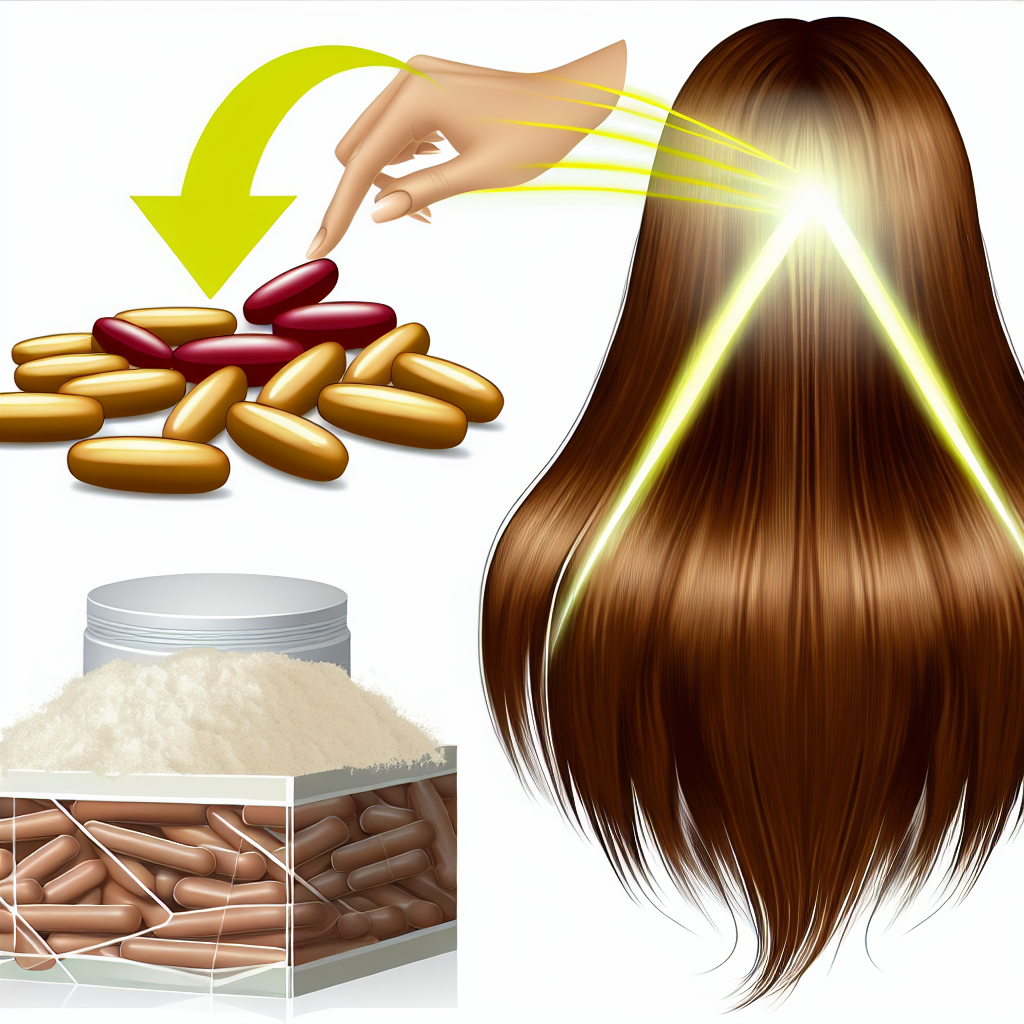Have you ever found yourself frustrated with slow-growing hair or more shedding than usual? You’re not alone, and fortunately, the solution might be simpler than you think—your diet! The right vitamins and minerals are essential for maintaining healthy hair, and deficiencies can leave your strands looking (and feeling) lackluster.
Vitamins like Biotin, Vitamin D, and Vitamin C are the building blocks of hair health, fueling follicles to grow stronger and faster. Pairing these nutrients with a few smart lifestyle changes can result in noticeable improvements over time. In this article, we’ll explore the top vitamins for hair growth, practical ways to get them into your routine, and bonus lifestyle tips to naturally support your hair journey.
What Causes Hair Loss and Slow Growth?
Hair growth is a complex process influenced by genetics, hormones, lifestyle habits, and—you guessed it—nutrition. Many people overlook the fact that poor nutrient intake can sabotage hair follicle functionality, leading to thinning, breakage, or even hair loss.
When the body lacks essential vitamins like Biotin or Vitamin D, hair follicles struggle to stay active and healthy. Over time, this can cause a decrease in hair density or growth rate. By identifying your nutrient gaps and addressing them, you can give your follicles the support they need to thrive.
Vitamins That Support Optimal Hair Growth
Here’s a breakdown of the top vitamins and minerals proven to support stronger, healthier hair:
1. Biotin (Vitamin B7): Your Hair’s Best Friend
Biotin is often called the “hair growth vitamin” for a reason—it helps produce keratin, the protein that strengthens and supports hair structure. Without adequate keratin production, strands can become weak and prone to breakage.
Top Food Sources:- Eggs
- Almonds
- Spinach
- Sweet potatoes
Incorporating biotin-rich foods into your meals is easy, and doing so consistently can yield noticeable improvements. While supplements are widely available, speak to a doctor before starting to ensure safe use.
2. Vitamin D: Activating Dormant Hair Follicles
Vitamin D isn’t just vital for strong bones—it plays a major role in stimulating hair follicles that might otherwise remain dormant. A deficiency in Vitamin D is often linked to hair thinning or loss.
Natural Ways to Boost Vitamin D:- Spend 10–15 minutes in sunlight daily.
- Add fatty fish like salmon or tuna to your diet.
- Include fortified breakfast cereals or juices.
If sunlight exposure is limited (hello, winter!), supplements might help bridge the gap.
3. Vitamin C: The Collagen Builder
Vitamin C is vital for producing collagen, a protein that strengthens the structure of your hair while supporting scalp health. It also improves iron absorption, making it doubly beneficial for people dealing with brittle hair caused by iron deficiency.
Foods Rich in Vitamin C:- Oranges
- Strawberries
- Bell peppers
- Leafy greens
Try adding citrus fruits to your breakfast or bell peppers to a salad for a quick nutrient boost.
4. Vitamin E: Nourishing Your Scalp
A natural antioxidant, Vitamin E protects hair follicles from environmental stress while boosting scalp blood circulation. This ensures your follicles are supplied with the nutrients needed for healthy, consistent growth.
Sources of Vitamin E:- Avocado
- Sunflower seeds
- Almonds
For even more benefits, consider creating DIY scalp treatments with Vitamin E oil for added hydration and nourishment.
5. Iron and Zinc: Vital Minerals for Growth
Iron and Zinc are crucial for hair development at the follicle level. Iron ensures proper oxygen supply to your hair roots, while Zinc supports cell function and follicle repair.
Best Sources:- Spinach
- Lean meats
- Lentils
- Oysters
If you’re vegetarian, consider pairing plant-based iron sources with Vitamin C to improve absorption.
How to Incorporate These Vitamins Into Your Routine
Focus on Whole Foods
The best way to get these vitamins is through whole, natural foods. Make small changes, like adding spinach to your lunch or snacking on almonds, to maximize your nutrient intake over time.
Supplements: Should You Use Them?
Supplements can act as a convenient backup plan if you’re struggling to meet your nutrient needs through diet alone. Hair-specific multivitamins often combine Biotin, Zinc, and other essentials to simplify your routine. However, always consult your healthcare provider before starting any new supplement regimen.
Topical Treatments for Enhanced Nourishment
DIY hair masks enriched with Vitamin E or coconut oil are perfect for combatting dryness or damage. Massage the mixture gently into your scalp to enhance circulation while deeply hydrating your strands.
Lifestyle Hacks for Stronger, Faster-Growing Hair
Small changes to your daily routine can complement your nutrient intake beautifully. Here are some practical tips:
- Stay hydrated: Drinking enough water ensures your scalp doesn’t dry out, and it plays a major role in maintaining overall follicle health.
- Reduce stress: Chronic stress disrupts hair growth cycles, so explore relaxation techniques like yoga, meditation, or long walks.
- Gentle scalp care: Massaging your scalp for five minutes daily improves circulation and stimulates follicles.
- Avoid heat tools: Minimize the use of curling irons or flat irons—too much heat weakens your strands over time.
Conclusion: The Hair Transformation Begins Here
Nutrient deficiencies are a major contributor to hair woes, but fortunately, they’re completely fixable. With Biotin enhancing keratin production, Vitamin D stimulating follicles, and Vitamin E adding protection, these essential nutrients provide everything your strands need to thrive.
Start small: add hair-friendly foods to your meals, explore supplements as needed, and be consistent with gentle care practices. Your hair won’t change overnight, but give it time—soon enough, healthier, stronger, and faster-growing hair will be totally within reach!
